#FactoryFarming
Explore tagged Tumblr posts
Text
This really just confirms what I've been saying, and its not at all surprising. All health epidemics are connected with animal abuse, and animal agriculture, all of them.
16 notes
·
View notes
Text
Shocking PETA investigation: Butterball workers accused of sexually abusing turkeys before slaughter.
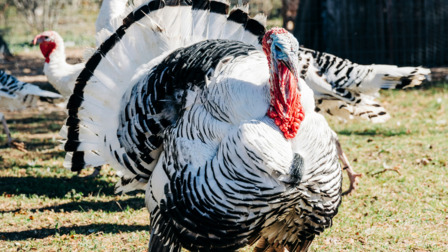

read more from here
#AnimalCruelty #PETA #Butterball #Thanksgiving"
#animal welfare#CrueltyFree#EthicalEating#FoodIndustry#FactoryFarming#Butterball#Thanksgiving#AnimalCruelty
3 notes
·
View notes
Text
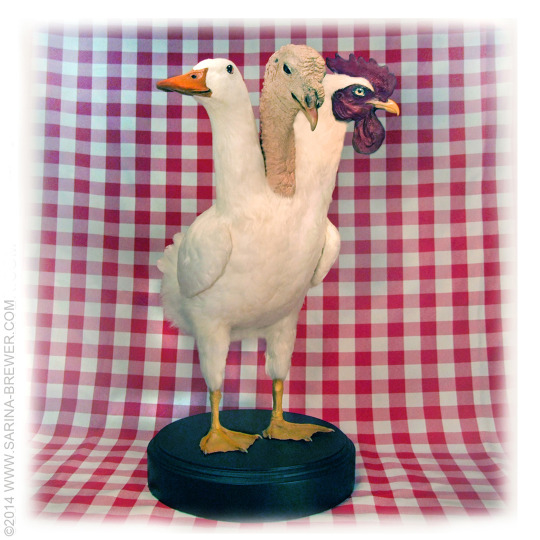
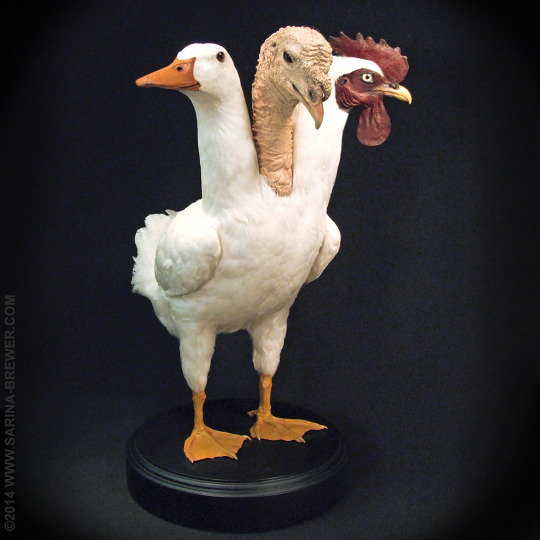
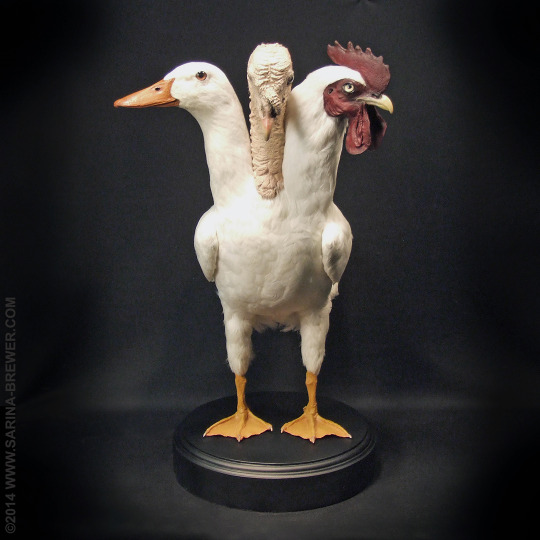

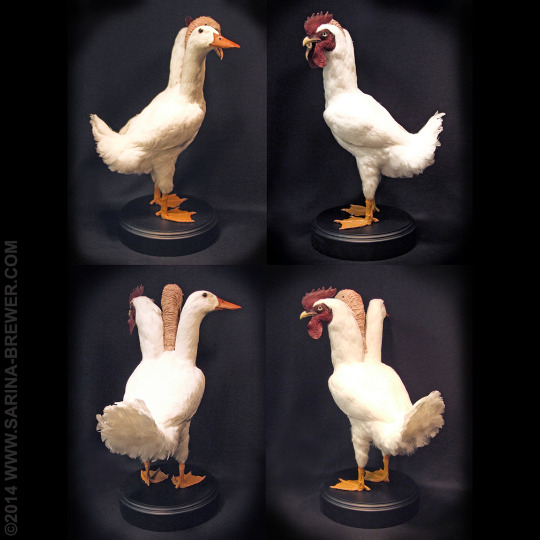
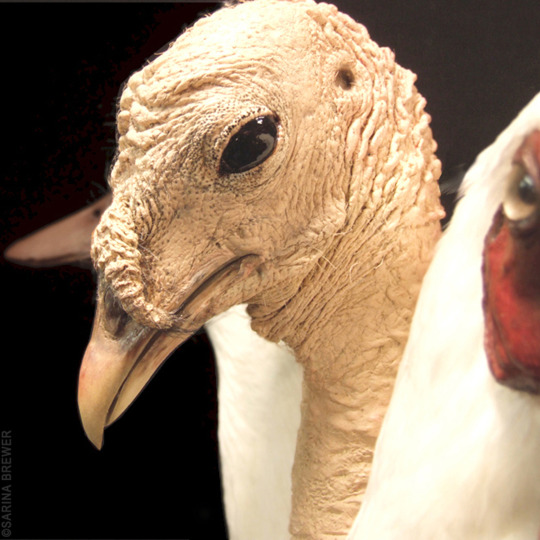
Be Thankful
Glazed in beguiling dark humor, this taxidermy sculpture has a serious message that rings even more true today than it did when I originally made the piece ten years ago. As most of you likely have heard, the population of Earth just reached 8 billion. In the span of a mere decade since this sculpture was created, an additional billion humans now live on the planet. Below is the statement that accompanied this sculpture the first time it was exhibited in 2014 in a themed exhibition titled Fruitful and Multiplying – The Overpopulation Exhibit. So much for progress.
___________________________________________
TITLE: Turducken à la Monsanto MATERIALS: Domestic duck, turkey, and rooster skins
“This piece is a commentary on the absurdity and entitlement of gourmet foods, the privilege of being able to allocate food for the purpose of art, and the disconcerting technology of interspecies grafting performed by the bioengineering industry. The strain on our planet's resources has become immense as the population of Earth crests 7 billion. With a tipping point looming, genetic engineers are creating hybrid species of livestock and crops designed to produce the highest yield possible while using the least amount of resources. The reality is many developing countries do not have the means to utilize this controversial technology and only an elite portion of the Earth's population will profit from these so-called advances. We live in a country rich in all resources. It enables us to use food towards a myriad of frivolous ends, including our entertainment. We create designer cuisine that is more about status than it is about sustenance, and we feed human quality food to our pets. While we enjoy our luxury foods, for much of the world just having food is a luxury.” ~
___________________________________________
I recently culled a number of works from my personal collection to offer for sale. This sculpture is among a handful of others that are now available. Link here for price list
___________________________________________
#PopSurrealism#EnvironmentalArt#EcologicalArt#EcoArt#FactoryFarming#GeneticEngineering#Geoengineering#Bioengineering#Biotechnology#biotech#GeneSplicing#crispr#Chimera#FeedThePlanet#FeedTheWorld#PopulationGrowth#PopulationControl#Monsanto#Turducken#ThanksgivingArt#PopSurrealist
11 notes
·
View notes
Text
#cheeseburger#nationalcheeseburgerday#fastfood#slaughter#factoryfarms#factoryfarming#restraunt#drivethroughrestraunts#cows#cattle
1 note
·
View note
Text
Monday's image: February 12, 2024
Narsiso Martinez, Royal-ty, Ink, gouache, charcoal, and gold leaf on found produce boxes, 77 x 108 inches, 2021, Amon Carter Museum of American Art, Forth Worth, Texas
#mc_embed_signup{background:#fff; false;clear:left; font:14px Helvetica,Arial,sans-serif; width: 600px;} /* Add your own Mailchimp form style overrides in your site stylesheet or in this style block. We recommend moving this block and the preceding CSS link to the HEAD of your HTML file. */
Subscribe to Monday's image
* indicates required
Email Address *
(function($) {window.fnames = new Array(); window.ftypes = new Array();fnames[0]='EMAIL';ftypes[0]='email';fnames[1]='FNAME';ftypes[1]='text';fnames[2]='LNAME';ftypes[2]='text';fnames[3]='ADDRESS';ftypes[3]='address';fnames[4]='PHONE';ftypes[4]='phone';}(jQuery));var $mcj = jQuery.noConflict(true);
#sufferingfinancialloss#needforaction#Wehaveoneofthebestjobsintheworld#butatsunamiiscomingourway#Nooneislisteningtous#Ifthingscontinuelikethis#patientswillsoonhavetowait#twotofiveweeksforanappointment#NarsisoMartinez#mixedmedia#painting#drawing#produceboxes#farmworkers#factoryfarms#protestsigns#cowmasks#angryfarmers#buckets#Aalst#UnrestamongGPsreachesboilingpoint#healthcare#FrustrationsindoctorsinternalFacebookgroup#callforactiongettinglouder#VjenDeBruycker#generalpractitionerLeffinge#conflictingpolicies#Vooruit#TomMeeuws#clashingwithinAntwerp'scouncil
0 notes
Text
The Unsustainable Truth: How Animal Agriculture is Killing Our Planet

Introduction:
When most people think of climate change, they often picture exhaust-belching cars or smokestacks emitting plumes of pollution. While these sources undoubtedly contribute to the problem, there is another culprit with an even more significant impact on our planet: animal agriculture. Responsible for a tremendous carbon footprint, the livestock industry plays a substantial role in exacerbating climate change. In this blog post, we will explore the environmental consequences of animal agriculture's carbon emissions and discuss sustainable alternatives to mitigate its impact.
The Link between Animal Agriculture and Carbon Emissions

Unveiling the workings of greenhouse gas emissions in animal agriculture:
Methane, a potent greenhouse gas (GHG) emitted during enteric fermentation and manure management, is a major contributor to animal agriculture's carbon footprint. Cows, for instance, release considerable amounts of methane through their digestive processes. Additionally, nitrous oxide emissions from manure management and synthetic fertilizers further exacerbate the problem. Moreover, the indirect carbon emissions associated with deforestation for pastureland and feed production must not be overlooked.
Statistical evidence illustrating the scale of animal agriculture's carbon footprint:
To comprehend the magnitude of the issue, it is imperative to examine the numbers. Globally, livestock production is estimated to generate nearly 15% of all human-induced GHG emissions. That surpasses the emissions from the entire transportation sector, including cars, trucks, ships, and airplanes. Furthermore, animal agriculture is responsible for approximately 80% of all deforestation in the Amazon rainforest, leading to a loss of biodiversity and further increasing carbon emissions.
Environmental Consequences of Animal Agriculture's Carbon Footprint

Impact on climate change:
The staggering emissions from animal agriculture greatly contribute to the greenhouse effect and subsequent global warming. As a result, we are witnessing severe weather patterns, melting glaciers, and rising sea levels. The emissions create a vicious feedback loop, exacerbating climate change and its impacts on ecosystems and communities worldwide.
Deforestation and loss of biodiversity:
Animal agriculture drives deforestation on a massive scale. Immense areas of valuable rainforests are cleared to create pastureland for livestock or grow feed crops like soybeans and corn. This destruction of natural habitats leads to the loss of countless plant and animal species, disrupts the delicate balance of ecosystems, and releases stored carbon into the atmosphere.
Water scarcity and pollution:
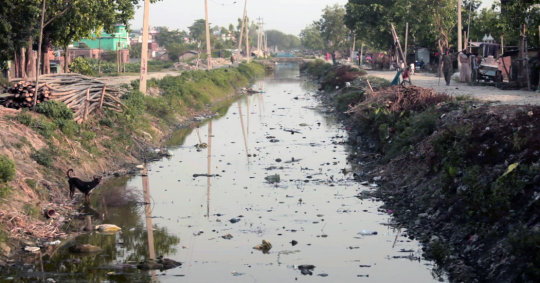
Animal agriculture accounts for a considerable portion of global freshwater consumption. Water is needed to irrigate crops for animal feed and provide drinking water for livestock. Consequently, it contributes to water scarcity in many regions. Furthermore, the intense use of fertilizers and the improper management of animal waste leads to water pollution, as runoff carries excess nutrients and pathogens into rivers and oceans.
Sustainable Alternatives to Mitigate Animal Agriculture's Carbon Footprint
Plant-based diets and their environmental benefits:
One of the most effective actions individuals can take to reduce animal agriculture's carbon footprint is to adopt plant-based diets. By choosing plant-based alternatives over meat and dairy, we can reduce the demand for livestock feed crops, decrease deforestation rates, and mitigate emissions associated with animal agriculture. Plant-based diets not only have numerous environmental benefits but also promote personal health and animal welfare.
Technological advancements and innovative solutions:
The emergence of technological advancements offers hope for a more sustainable future. Clean meat, also known as lab-grown or cultured meat, aims to produce real meat without the need for traditional animal farming. This method requires significantly fewer resources, reduces methane emissions, and eliminates the need for deforestation. Additionally, sustainable farming practices, such as regenerative agriculture and improved waste management, can help mitigate the carbon footprint of animal agriculture.
Policy changes and industry transition:
While individual actions are crucial, systemic change is necessary to address the environmental impact of animal agriculture. Governments must implement policies that incentivize sustainable farming methods, support research in alternative protein sources, and promote the consumption of plant-based products. Additionally, consumer awareness and demand for eco-friendly products can exert pressure on the industry, encouraging the adoption of sustainable practices at a larger scale.
Conclusion:
The unsustainable truth is clear: animal agriculture is playing a significant role in the degradation of our planet. Its vast carbon emissions contribute to climate change, deforestation, water scarcity, and the loss of biodiversity. However, by adopting plant-based diets, supporting technological advancements, and driving policy changes, we can make a positive impact. In the face of this global crisis, it is crucial for individuals, industries, and governments to come together and take responsibility for creating a more sustainable future.
#FactoryFarms#MeatFreeMonday#CrueltyFreeFood#VeganLifestyle#SaveTheAnimals#NoMoreFactoryFarms#EndFactoryFarming#GoGreenGoVegan#SaveThePlanetEatPlants#ProtectOurOceans#SaveOurAnimals#GoVeganForYourPeace
0 notes
Text
Farming Shocking Behind The Scenes Look 🙀 #farming #farm #factoryfarming...
youtube
#crueltyfree#plantbased#vegan#veganlife#animalrights#veganforum#veganfood#vegansearchengine#caavakushi#veganblog#factory farms#vegan podcast#vegan newsletter#Youtube
16 notes
·
View notes
Text
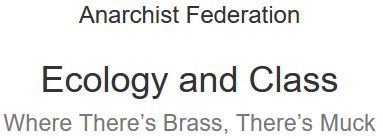

Change Yourself, Change The World
Lifestylism is the theory that major social change will only come about through individuals changing the way that they live and relate to other individuals. It is vital for revolutionaries to examine and change the way that they live — for example to tackle racism and sexism in themselves and others. Those who don’t, ‘speak with a corpse in their mouths’. But on it’s own this is not enough.
Lifestylism is an individualistic theory. It believes that society is made up of individuals who possess real choices about how they live: for example whether they do waged work and what job they do, whether they live communally, pay rent, squat etc. If enough people make the right moral or ethical choices and act upon them, reform or major social change will occur – right?
Many people look critically at what food they buy and eat, for reasons of health, ecology, animal liberation and social justice. They boycott ‘Third World’ cash crops such as tea, coffee and sugar in favour of “non-exploiting” home produce; buy freerange and organic wholefoods rather than food that is factoryfarmed and chemically treated, refined or adulterated; adopt vegetarian or vegan diets rather than meat or dairy ones. In the wider areas of consumption, lifestylists boycott ‘bad’ companies connected with oppressive regimes, vivisection or the arms trade. Similarly, they favour small shops and co-operatives rather than supermarkets and hierarchical businesses.
However, campaigning against ‘bad companies’ implies that there are ‘good’ companies. Big companies are only worse than small ones because they are bigger. In a class society, worker and consumer co-ops are only a milder form of exploitation. Because they are environmentally concerned they buy green products that claim to be eco-friendly and try to recycle what they use. Gardens and allotments are used to produce fruit and vegetables, and LETS (Local Exchange Trade Schemes) enable people to directly exchange goods and services at a local level and with minimum use of money.
Many lifestylists are also pacifists, people opposed to violence, particularly the existence of the military and the criminal waste and misallocation of resources of the arms trade. Peaceful methods are the means to an end; a peaceful society. Because all behaviour is a matter of individual choice, police on pickets and demonstrations (for example) should be treated as individuals who “can be nice to you if you’re nice to them”. For a number of pacifists all violence is equally bad (whether committed by oppressors or oppressed), so it was wrong for demonstrators to defend themselves; they should simply lie down passively while being arrested or beaten up. Some pacifists even argue against using peaceful force, for example a nonviolent workplace occupation, because it is ‘violent’ to impose your will on other people, yet they remain blind to the institutional violence of Capitalism, which – for example — routinely kills, injures and harms thousands of workers in the name of profit.
The fundamental flaw of lifestylism as a political theory is its individualistic basis. As anarchist communists we see individual freedom as vital, but the guarantee of this lies in the social freedom of all. We live in a class society that is organised for the wealth and power of an elite, the ruling class (Bosses, Landlords, Judges, Politicians, Top Military, Police and Civil Servants). The majority of people — the working class — have no real choice about how they live. They are forced to do boring, useless (and unhealthy) work for a boss, the drudgery of fulltime housework and childcare, or the poverty and harassment of “living” on welfare benefits.

The reality is that production for profit inevitably means the domination and exploitation of people, useless production, the ruination of nature, its pollution and destruction. The people who decide what is produced and how are neither workers nor consumers. They are the people who own the means of production (land, factories etc), the bosses and landlords. Their sole motivation is profit by domination and exploitation. Organised consumer campaigns can have an effect, if allied to workers’ action, for instance boycotting the production of goods during a strike. What is needed is local and national organisation, and collective direct action, ending in the working class seizing the means of production and reclaiming those places denied to us and simultaneously creating structures where everyone has a direct say about all aspects of society: workplace and neighbourhood councils, street committees and so on. Only in such a classless society — Anarchist Communism — will we have production for use in a world human community that is also in harmony with nature.
#anarcho-communism#anarcho-primitivism#anti-capitalism#capitalism#class#class struggle#climate crisis#colonialism#deep ecology#ecology#global warming#green#Green anarchism#imperialism#industrialization#industrial revolution#industrial society#industry#mutual aid#overpopulation#poverty#social ecology#anarchism#anarchy#anarchist society#practical anarchy#practical anarchism#resistance#autonomy#revolution
3 notes
·
View notes
Text
Contre l’élevage intensif, https://don.ciwf.fr/page/115313/donate/1?_gl=11w2thzh_gaMTA5NzY3MjUyNS4xNjkzNTE3OTU1_ga_RMC05PGGT7*MTY5MzUxNzk1NS4xLjAuMTY5MzUxNzk1Ny42MC4wLjA.&supporter.appealCode=CAPWE_FR0723c&utm_campaign=factoryfarming&utm_medium=ciwf&utm_source=linkea.tracking.id=link&supporter.appealCode=CAPWE_FR1122&utm_campaign=factoryfarming&utm_source=link&utm_medium=ciwf
https://www.youtube.com/watch?v=hbRXHHZ15d0 Cet ouvrage sera disponible aussi, pendant la quinzaine où je vais exposer à Doudeville, du 4 septembre au 17 septembre, à la maison du lin. J'aborde dans cet ouvrage, bien des choses sur l'aviculture, en tant qu'amateur, mais aussi, bien au delà, parce que j'ai participé à la sélection d'une poule en voie de disparition, qu'on appelle "la Pavilly", et ai poussé le bouchon jusqu'à aller l'exposer au salon de l'agriculture, ) Paris, porte de Versailles, avant que la grippe aviaire ou autres maladies, n'aient eu pour conséquence que les expositions avicoles, nous ait interdit d'en organiser.
0 notes
Text
This blog is to share my journey to follow the main ideas of these books (just to start):
1. Braiding Sweetgrass by Robin Wall Kimmerer
2. Sand County Almanac by Aldo Leopold
3. The Omnivore’s Dilemma by Michael Pollan
#environmental health#food centered Justice#ecofeminism#foraging#north america#sustainability#factoryfarming#nature conservancy#conservation#environmental conservation and preservation
4 notes
·
View notes
Photo
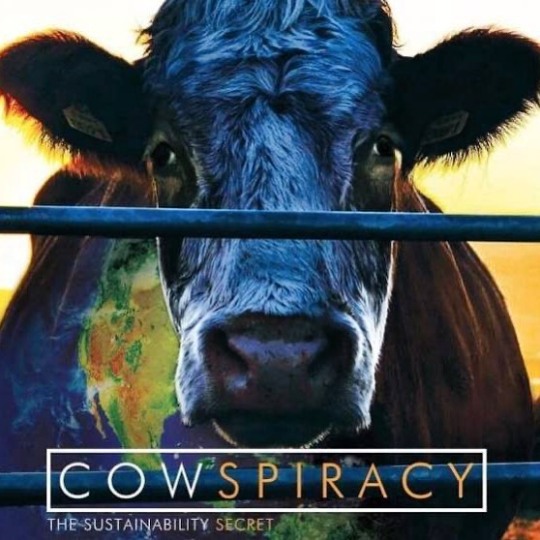
Here’s a film that has turned very many people #vegan, including me, @jasonpeters (back in 2014!) – @Cowspiracy: The Sustainability Secret – a groundbreaking feature-length #environmentaldocumentary now streaming on @Netflix. 🐮 🐄 As eye-opening as #Blackfish and as inspiring as #AnInconvenientTruth, this shocking yet humorous #documentary reveals the absolutely devastating #environmentalimpact large-scale #factoryfarming has on #ourplanet, and offers a path to global #sustainability for a growing #population. 🐄🐄 "One industry is destroying the planet more than any other-but no one wants to talk about it.” @aumfilms 🐄🐄🐄 Cowspiracy may be the most important film made to inspire saving the planet. — Louie @Psihoyos, Oscar-Winning Director of #TheCove 🐄🐄🐄🐄 "A documentary that will rock and inspire the environmental movement." — @DarrenAronofsky, Director of "Noah" and "Black Swan" 🐄🐄🐄🐄🐄 Also see @wthfilm … #WhatTheHealth - the follow up film, looking at the #health-impact of #meat, #fish, #eggs & #dairy 💊💊💊💊💊💊 @kipandersen's next film, #Seaspiracy is coming soon! Follow @seaspiracy 🎣 🐟🐟🐟🐟🐟🐟🐟 #Netflix #Cowspiracy #animalagriculture #livestockfarming #animalfarming #potd #govegan #plantbased #cows #instagood #vegansofig 🌱🌱🌱🌱🌱🌱🌱 https://www.instagram.com/p/CMhmAmrhXaN/?igshid=1xowzcp9puhpd
#vegan#environmentaldocumentary#blackfish#aninconvenienttruth#documentary#environmentalimpact#factoryfarming#ourplanet#sustainability#population#thecove#whatthehealth#health#meat#fish#eggs#dairy#seaspiracy#netflix#cowspiracy#animalagriculture#livestockfarming#animalfarming#potd#govegan#plantbased#cows#instagood#vegansofig
2 notes
·
View notes
Photo

Posted @withregram • @foodempowermentproject Like humans, turkeys live in family groups and are highly social birds. Ultimately, our choices at the dinner table determine their fate. If you have access to healthy foods, go vegan this Thanksgiving & encourage others to do the same. Read more about turkeys: https://buff.ly/2IRbV3G *link in bio*⠀ .⠀ .⠀ .⠀ .⠀ .⠀ .⠀ #foodempowermentproject #foodispower #eatyourethics #veg #veganfood #animallover #friendsnotfood #animallover #animalrights #turkeysofig #turkeysofinstagram #whyvegan #factoryfarming #foodjustice #changetheworld #instavegan #appetiteforjustice #thanksgiving #plantbased #govegan #veganism #vegansofig #foodjustice #vegan #veganfoodjustice #veganism #veg #holiday #vegetarian #instagood Come d'altronde tante specie!! https://www.instagram.com/p/CIAl8g_A7qY/?igshid=q8q2yg8r07x8
#foodempowermentproject#foodispower#eatyourethics#veg#veganfood#animallover#friendsnotfood#animalrights#turkeysofig#turkeysofinstagram#whyvegan#factoryfarming#foodjustice#changetheworld#instavegan#appetiteforjustice#thanksgiving#plantbased#govegan#veganism#vegansofig#vegan#veganfoodjustice#holiday#vegetarian#instagood
1 note
·
View note
Photo

Fact 158. Farmed frogs are crammed into pools with little room to move. It’s estimated that humans consume up to 3.2 billion for food every year.
Sources //
https://web.archive.org/web/20160807031347/http://www.savethefrogs.com/images/PDFs/Gratwicke-2009-Frog-Legs.pdf
https://inews.co.uk/opinion/comment/frog-farming-intensity-problem-225290
https://en.wikipedia.org/wiki/Frog_legs
#frogs#confinement#factoryfarming#vegan#veganfacts#someveganfacts#vegansoftumblr#vegansofinstagram#isolation
9 notes
·
View notes
Video
youtube
Supreme Master Ching Hai (Vegan) on the Harmful Effects of Meat, Part 13 - Atrocious Cruelty to Poultry
People fortunate to have chickens as companions find these loving creatures to be very affectionate, sociable, and intelligent. It is a sad and great loss for those who view these precious birds simply as food. More than 50 billion chickens confined in extremely crowded factories are slaughtered each year. Genetically modified and force-fed all kinds of hormones, medicine, and other chemicals to promote rapid growth, factory farm chickens have a life span of only 6-7 weeks rather than their normal 7-15 years. This leads to antibiotic immunity, dangerous hormones, poisonous chemicals, and epidemic diseases that are transferred to humans when they consume the chicken meat.
For more information on the Harmful Effects of Meat, please visit SupremeMasterTV.com
#SupremeMasterTV#GoVegan#SayNoToMeat#FactoryFarming#animal protection#Animalrights#Vegan#Veganism#Chickens
1 note
·
View note
Photo
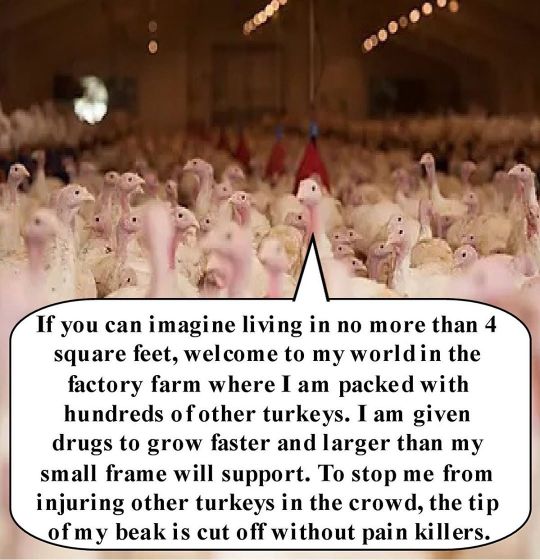
"No more than 4 square feet.”
#animalwelfare#animalliberation#welcometomyworld#antianimalabuse#turkeys#turkeyfood#thanksgiving#thanksgiving🦃#govegan#factoryfarm#factoryfarming#four#food#turkeysarefriendsnotfood#crowded#crowdedplaces#crowds#seemeatdifferently
1 note
·
View note
Photo

🔘 More Than Just "Food" Animals 🐮🐖🐔🐟 ▫️ Credit: ➡ @dr.vegan ▫️ If you knew that farm animals were as intelligent as your children or pets, would you stop eating meat? ▫️ If you answered “yes,” then it might be time to do so. ▫️ From pigs to cows to chickens, farm animals are all much smarter than we’ve ever given them credit for. ▫️ Pigs learn their names and can do tricks like a dog. Cows and chickens all have incredibly complex social constructs, and they have best friends just like we do. ▫️ These are all amazing, sentient beings, yet, because we think of them as commodities, they are never afforded the respect or care that they deserve. ▫️ Thinking that farm animals are in some way different than our cats and dogs is a cultural construction that allows us to rationalize mass-producing and slaughtering these animals for food. ▫️ However, when we take a step back and learn how intelligent these creatures really are, suddenly we can begin to break down our preconceptions and see farm animals as someones, not somethings. ▫️ Follow 👥, Like ♥️, Share 🔄 & Comment 📝 #animalovers #animalrescue #animalrescuer #animalrights #capetownvegan #crueltyfree #factoryfarming #fitvegan #govegan #onlyvegan #veganfamily #plantbased #plantbaseddiet #plantbasedfood #plantbasedmealplan #plantbasedvegan #plantbasednews #veganbodybuilding #veganfitness #veganfood #veganfoodie #veganfortheanimals #veganknowledge #veganmealprep #veganpower #veganrecipe #veganrecipes #whatmotivatesyou #whatveganseat animalabuse https://www.instagram.com/p/B3P8R1_JYml/?igshid=1qn8anesm2f4d
#animalovers#animalrescue#animalrescuer#animalrights#capetownvegan#crueltyfree#factoryfarming#fitvegan#govegan#onlyvegan#veganfamily#plantbased#plantbaseddiet#plantbasedfood#plantbasedmealplan#plantbasedvegan#plantbasednews#veganbodybuilding#veganfitness#veganfood#veganfoodie#veganfortheanimals#veganknowledge#veganmealprep#veganpower#veganrecipe#veganrecipes#whatmotivatesyou#whatveganseat
5 notes
·
View notes